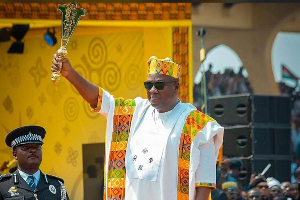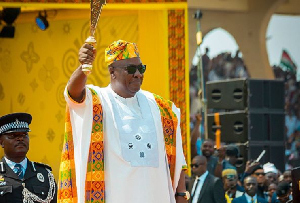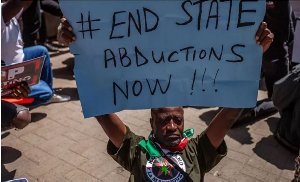“As a government, we are aware that the lockdown has caused great disruption to all our lives and caused upheaval in our economy. But we all know and agree that this nationwide lockdown is absolutely necessary to save the lives of thousands, even tens of thousands, of our lives . Many countries on our continent and in our own region SADC have embarked on similar measures” President Cyril Ramaphosa of South Africa. Source: www.gov.za
Entertainment: Night life is a social aspect in many communities and has a great socioeconomic impact on nations all-round the globe; even in countries that are theocratic. This sector has been brought down to its knees. It is worth noting with sadness fall of a global music icon of African origin Manu Dibango who died in France after catching the corona virus. He was well known for his 1972 song ‘Soul Makosa’. His death undoubtedly will have a painful effect on the global entertainment industry.
Night clubs, bars, sex industry, and all night vigils in churches and night crusades have all been grounded. One may say, probably meetings of the esoteric realms may not have been affected but, would it have any positive impact on our situation any soon? Certainly, in restaurants, the most one can do is to buy and take-away. During this period, family lives could be enhanced while friendship relationships may experience reduced intimacy. What may be conspicuous in friendship could be telephone or internet calls, thanks to the digital age. If this persists, it could reshape the way people relate to family life and friendship.
The Cannes Movie festivals in France that commend talented people from the movie arena each year through the Cannes Movie Award; Italy’s Far East Film Festival, The Game Developers Conference in San Francisco, Sony Interactive Entertainment, Facebook Gaming, Microsoft and Electronic Arts are all affected by the effect of the Virus. Hollywood worries that, China that gave the industry about $9.2 billion in 2019 would not be sound enough to buy their services and products this year and in addition, Shanghai Disneyland is closed. Paramount Pictures, Universal, Marvel and all the big industries in the show biz world have been virtually paralyzed by a microscopic organism: the Corona virus. The Cinema world would experience delay in releasing finished movies; an unfortunate opportunity that pirates would certainly explore. This may cost the industry great fortune: an infringement on intellectual property rights..
The fashion industry has been thrown in disarray as well. Factories around the world have closed down and China, the biggest producer of cheap and affordable cloths, cannot sell to most countries during this season. Italy that is noted for her fashion brands is paralyzed by the corona virus in all sectors. The re-invigorating African fashion industry is crippled. The supply chain in the Fashion world is seriously dented;and no one can predict when this nightmare will be over. The National Chamber of Italian Fashion, demonstrated solidarity with a strong message to China that turned out to be prophetic. “China we are with you”, they lamented. Like a bad augury, before the end of the fashion week, Giorgio Armani held his women’s Fall/Winter 2020/2021 fashion show in an empty theater, because Italy was busy burying her dead. The social and economic ramifications of this fashion paralysis cannot be over emphasized. Should this persist, the fashion world could be left obscured for many years. Love ones are held hostage at home and some quarantined in medical centers. Until the threat is over, the fashion world may remain inactive all-round the globe because, people dress up to close up their nakedness, to feel beautiful, to compete or to show-off and money changes hands. In the present circumstances where people mostly stay indoors, fashion can only be reduced to the simple act of tailoring for some few seamstresses and tailors who’ll provide basic services.
Music: The music industry is not left out; the effect of the Corona Virus on the music industry is enormous. Not only would there not be choir groups singing their choral music in church or anywhere, using the microphones isn’t safe any longer. Except proper disinfection is carried out, a microphone is a potential corona virus weapon. The tiny viruses can hide in the pores of microphones or the foam if it is not completely soaked with the antiviral agent during sanitization. In addition, recording studios are air tight and those recording at this point in time must be aware of the risk involved. The global music culture is suddenly put into a pause indefinitely. Singing together or orchestras are risky because experts say; the virus is a respiratory type and can be transmitted through droplets. Even more seriously, no musical concerts would be safe during this period.
The culture of music concert is as old as time and, even when musical instruments weren’t as sophisticated as today, crowds would gather to watch talented singers sing out their hearts. This culture is dented by the corona virus epidemic and the social ramifications are immeasurable. This could even lead to increase stress and trauma cases,for those who live by the trade, and the few who rely on live music as a stress therapy. Whatever would be the case, it can never be a good idea to organize any concert whatsoever until the virus is kicked out with a drug or vaccine.
The World’s Biggest sensational Boys band, the BTS cancelled their Mapped concert both in Korea and out of Korea due to Covid-19 while Glastonbury in England; a five day musical show and the Coachella California music annual festival have all been postponed. Traditional musicians are feeling the heat as well. 0 -Preachers of the word of God and gospel artists the world over have all succumb to the threat of the virus and cancelled their crusades and musical jamborees. Oh! When shall the sounds of African Fontomfrom, Atrikpi, Kpalongo, Borborbo, Ingoma, Bata and Atilogwu dances with their exuberant players and dancers be seen displaying their arts again?
When shall the Akwasidae celebrations be graced with the stylistic dance strides of the Kete dancers?
When shall the Horse riders appear during Damba dance clad in the royal smock of Dagbon? ..Many aspiring musicians, DJs, session players, sound engineers, booking agents, record shop owners, labels, tour managers, event staff and many on the music value chain are all affected negatively.
Tourism and Transportation: The pandemic has affected global tourism like never before. It has caused major events around the world to be cancelled or postponed and public venues, institutions and programs are all closed. Airports are all closed and people stay home. These have affected not only the socio-cultural but economic sector in every nation. The Tourism sector therefore cannot rake the gains they use to make. Most Africans live with nature and may not give value to some of natural world around them. Eventually touristic sites are mostly visited by foreign tourists. In 2011, Ghana gained about $2.19 billion ($2,019,000,000) from the tourism sector from about 1,087,000 million international tourists according to Sakyi, Kwesi Atta’ s article of 29 November 2012 entitled, “Tapping Deep into our Tourism Potential in Ghana” that was posted on ghanaweb.com. The ministry of tourism reported on their website that, in 2012, the nation’s tourism sector had about $1.7 billion ($1,700,000,000) from 993,600 international tourists and provided employment for 359,000 people in an article entitled, “We Are Serious about Overcoming the Challenges Confronting Tourism Development” released in 2014. It is estimated that Ghana could gain annually, as from 2027, US$8.3 billion ($8,300,000,000) from the tourism sector according to the ministry of tourism’s projections, through 4.3 million international tourists as reported by ghanaonlinenews.com on the 14th of August 2016 on an articles titled, “Ghana To Earn 8.3 Billion USD From Tourism By 2027.
The Economic Commission for Africa (ECA) has noted that, “Africa may lose half of its GDP with growth falling from 3.2% to about 2% due to a number of reasons which includes the disruption of the global supply chain, Africa’s interconnectedness to affected economies of China, European Union, and the United States was causing a rippling effect,” she indicated in a press release. According to Dr. Songwe“… remittances and tourism are affected as the virus continues to spread globally resulting in a decline in capital flight, domestic financial market tightening and a slow-down in investments” as per a report of The Vaultz Magazine, titled, COVID-19: ECA Advises African Governments to Review Budget..
According to President Faure Gnasingbe of Togo, the period of the lockdown will be used by the authorities to adopt exceptional measures of health response to tackle COVID-19.
Transportation: The supply chain disruption has affected even the most advance and proactive company or sector in the globe. Many nations in the world including Ghana have imposed traveling bans on high risked nations and China was number one on the list since the epicenter of the outbreak itself was in Wuhan, a city found in the Chinese province of Hubei.
The Nigerian Air Force is already making its fleet available to the Presidential Task Force on Covid-19, to enable a better coordinated and more effective response across the country.
To protect our homeland from external exposure, I directed the immediate closure of our International Airports and Land Borders for four weeks in the first instance, to enable us put up the appropriate policies, processes and infrastructure to cope with suspected and confirmed cases at home, without risking a compounding of the situation with more imported cases- President Muhammadu Buhari of Nigeria.
According to Bookings; a nonprofit public policy organization based in Washington DC, in 2018, Foreign Direct Investment (FDI) to Africa remained generally steady. While FDI flows were small by global standards, the ratio of FDI to gross domestic product (GDP) was high, signaling the importance of FDI to the continent’s economic growth. The largest investors by number of projects in Africa for some time now have been the United States, France, and the United Kingdom, respectively. “Notably, China was the largest investor in terms of total capital, investing more than twice the dollar amount of France or the U.S.” Bookings noted, while making allusion to EY’s ninth edition of the Africa Attractiveness Report that,“Foreign Direct Investment in Africa are partially driven by strong historical relationships: France, for instance, is a key investor in francophone Africa. Emerging partners, including China, the United Arab Emirates (UAE), and India, are playing an increasingly important role in Africa, accounting for 34 percent of total projects with over 50 percent of jobs created not forgetting capital investments. Additionally, intra-African investment continued to grow in 2018: South Africa remained the most extensive investor in other African countries, and Kenya and Nigeria contributed significant FDI to East and West Africa respectively. Egypt and Morocco are major investors in North Africa” according to EY. Below is a chart that summaries FDI in the continent since from 2014-2018.”
The trade influx in Africa from both the East and the West has recently observed new bilateral trends with Russia featuring on the show. The United States–Africa Leaders’ Summit was held in August 2014; in July 2018,Beijing reaffirmed its’ commitment with Africa through the Beijing - African Summit.
What seemed to be unprecedented was the Russian – African Summit of October 2019. Many critics and wellmeaning people saw the need for Africa to have its own summit as well, where it would direct properly the narrative of its destiny and contribute equitably on global leadership. The investment trajectory of foreign countries into Africa may be impaired by the seriousness of the virus on the globe should Africa’s case worsen. Even if Africa’s case is mitigated, trade would still be slowed down if the rest of the world remains in the nightmare; jobs and socioeconomic lives will be greatly affected. This should be an awakening call to all of us especially the African leaders, to look within and build a robust industrialized economy; adding value to its raw materials and minerals. Although the continent of Africa cannot live in isolation, it has what it takes to feed the world and not the other way round.
At these crucial moments, what must be underscored is good leadership. Africa must maximize any little gain and bring the best out of her people. While we commend some African leaders for exhibiting good leadership, One would not be wrong to say that, Africa’s problem is not the availability of human capital, investment opportunities, and the rest of the factors of production but to a large extent, the lack of good leadership. This could be termed the biggest pandemic of our generation. The transportation sector all over the world has been greatly affected and would continue to feel the brunt of the virus until a vaccine is found. In a dispensation where millions of energetic youth across the world are seeking for jobs and opportunity for better livelihood, this menace would leave nothing but a worsen case.
Aviation: On the 23rd March 2020, Air Canada announced a temporary layoff of 5,100 employees and suspending most of its international flights; Air New Zealand placed itself in a trading halt on the 18th March 2020; by the 10th of March American Airlines reduced her international flights by 10 percent (55 percent for Trans-Pacific routes) and domestic flights by 7.5 percent. This trend continues across all sectors in the world and Africa especially would be greatly affected because of lack of industries and weak economic factors. The sad thing is that, even the very few conglomerates within Africa are controlled largely by the external players. Even domestic lines have only few majority share holders from Africa. The time has come for us to identify, support and promote sustainable African businesses and innovations that could compete at the global front and create local jobs.
According to Wikipedia’s, Impact Of The 2019–20 Coronavirus Pandemic On Aviation In The Aviation Manufacturing Sector, “Airbus reduced its wing production on factories in Broughton, Filton and Bremen, reduced working hours in the sites while its French and Spanish sites suspended production for several days before a partial resumption on 23rd March, 2020 and Boeing froze hiring and reportedly laid off employees due to a large number of cancellations, which outpaced new orders in February 2020. Bombardier on 26thMarch 2020 announced a suspension of most Canadian production and halted production in Northern Ireland. 12,400 Bombardier employees in Canada (70 percent of the workforce) were furloughed. Embraer reported deferment of orders of its commercial aircraft. It also suspended its financial guidance for 2020.
All of these suspended activities would have a negative repercussion on the global aviation industry however; land and water forms of transportations are equally affected. In nation where lockdowns have been imposed, the private and government transportation systems would be resuming with deficit if at all they do resume. In Accra, Lagos, Abuja, Cape Town, Johannesburg, and many other busy African cities, commercial vehicles are off the roads. There are no moving cars at the transport centers and only very few are seen circulating in empty streets. Even if we speculate what the damages may amount to at this point in time, figures will be inaccurate in all sense because, we have just entered into the primary state of mitigating a virus that seems to be geared towards the rampage of the globe. Steps to shrink the crisis must be enforced but certainly, the effects will accrue until a vaccine is discovered.
Opinions of Tuesday, 21 April 2020
Columnist: Dr. Donald Agumenu



















